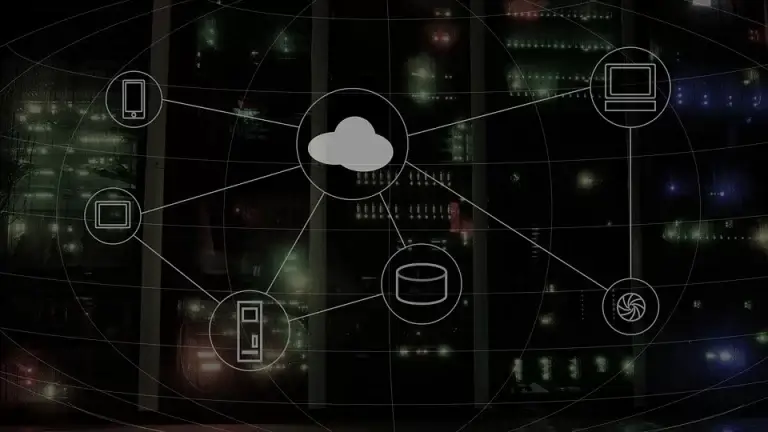8 Types Of Software Every Business Should Have

Are you running a business and feeling overwhelmed by all the software available? It can be difficult to know which types are essential for your operations. Fortunately, there are some key pieces of software that every business should have in its arsenal. In this article, we’ll outline 8 types of software that can help improve productivity and efficiency for any given business. Let’s get to the list.
Electronic Signature Software
Electronic signature software is one of the best software investments a business can make. This type of software allows businesses to quickly and securely execute contracts and agreements without the need for physical signatures. Using digital signature software is incredibly convenient and decreases the time it takes to move deals forward. It helps to streamline workflows, reduce paperwork, and save time, money, and resources.
Furthermore, electronic signature software is designed to be compliant with laws and regulations in different countries and territories. It also has robust access control features that allow users to protect confidential documents from unauthorized access. All of these features make it an invaluable tool for any business.
Accounting Software
All businesses need accounting software to manage their finances. Whether it’s tracking expenses or paying employees, accounting software can provide a comprehensive view of a business’s financial health. Accounting software can also be used to generate invoices and process payments. Automating the accounting process allows businesses to save time and focus on more pressing matters.
A variety of accounting software programs are available, so it’s important to find one that meets the individual needs of your business. Before selecting an accounting software program, consider how much automation you’ll need, what types of reports and analysis you’ll require, and if there are any specific features you may need down the road. Additionally, make sure it is compatible with other software tools you use.
Project Management Software
Project management software can help businesses stay organized and keep their projects on track. This type of software helps teams manage tasks, set deadlines, assign roles and responsibilities, track progress, and collaborate in real time. It also allows users to organize data quickly and keep track of changes, making identifying any issues that arise easier.
For businesses with remote employees, project management software is an invaluable tool for staying connected and productive. It helps to ensure everyone is on the same page and can help improve communication between team members. For instance, chat, video conferencing, and task-tracking tools can help keep remote teams connected and informed.
CRM Software
Customer relationship management (CRM) software helps businesses track customer interactions across all touchpoints in the customer lifecycle. It allows businesses to store customer data in a central location and analyze it to gain deeper insights into customer behavior. This information can be used to personalize the customer experience and create better relationships with prospects and existing customers.
CRM software is also important for streamlining sales processes and tracking leads. It allows businesses to manage their contacts, monitor lead progress, generate reports, and track sales performance. Additionally, it helps identify any potential problems that can arise and builds stronger customer relationships over time.
Email Marketing Software
Email marketing software is essential for any business that wants to reach a wider audience and keep its customers engaged. This type of software allows businesses to create, send easily, and track email campaigns. It also provides users with detailed analytics to measure their campaigns’ success.
Email marketing software also has features such as automated follow-ups, segmentation, and A/B testing that help businesses create more targeted campaigns. Additionally, some programs offer pre-built templates to make the email creation process easier and faster. By leveraging the power of email marketing software, businesses can improve their customer engagement and overall ROI.
Customer Data Platforms
Customer data platforms (CDPs) are designed to help businesses collect, store, and analyze customer data. CDPs allow businesses to create detailed profiles of their customers that include a variety of information, such as demographics, purchase history, and recent interactions. This type of software helps businesses generate more personalized experiences that can drive better results.
There are a number of different CDPs on the market, and selecting the right one for your business can be a challenge. It’s important to consider the features of each platform, as well as its pricing model, before making a decision. Additionally, ensure that the CDP integrates with other software tools you already use. For instance, if you use a CRM platform, make sure the CDP integrates with it.
Payroll Software
Payroll software is essential for businesses that need to pay their employees accurately and on time. This type of software helps automate the payroll process, reducing manual data entry and eliminating errors. It also helps ensure compliance with local laws and regulations, helping companies avoid costly fines or penalties. Additionally, some programs offer additional features such as direct deposit, tax filing, and reporting.
Payroll software can be a huge time-saver for any business. It simplifies the payroll process, saves money on labor costs, and helps companies remain compliant. Additionally, using payroll software helps to ensure employees are paid accurately and on time, improving employee satisfaction and morale.
Time Tracking Software
Time tracking software is useful for businesses that need to monitor their employees’ time and attendance. This type of software allows employers to track the hours worked by each employee, and any overtime or vacation time is taken. Most programs also provide users with detailed analytics to help them understand productivity and attendance patterns among their workforce.
Time tracking software is an important tool for businesses that want to be able to measure the performance of each employee and monitor costs associated with labor. With this type of software, businesses can easily manage the time their employees spend on specific tasks and projects and track any overtime hours. The data provided by time-tracking software also helps companies determine which tasks or projects may be more productive and which may need re-evaluation or adjustment.
There are many different types of software available to help businesses improve their operations. From email marketing software and customer data platforms to payroll and time tracking software, each type of program offers its own set of benefits that can help businesses gain better results. It is important to carefully consider which type of software is right for your business in order to ensure the best possible outcomes.







